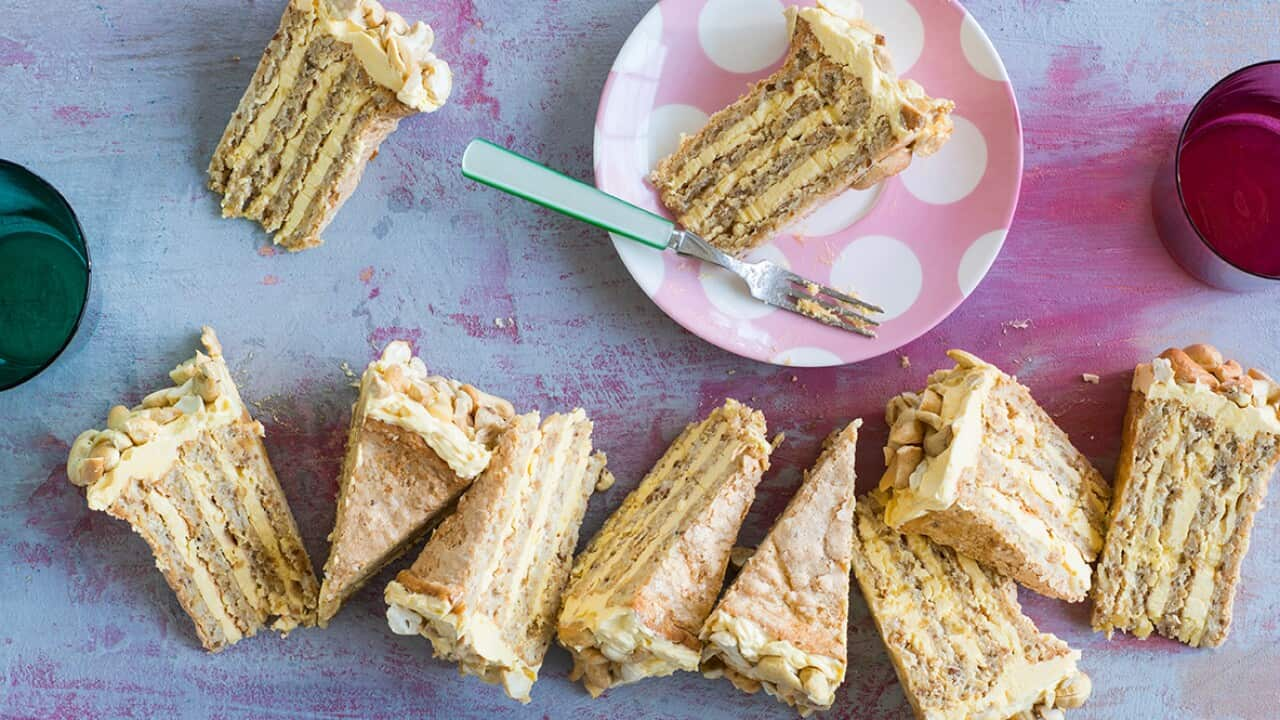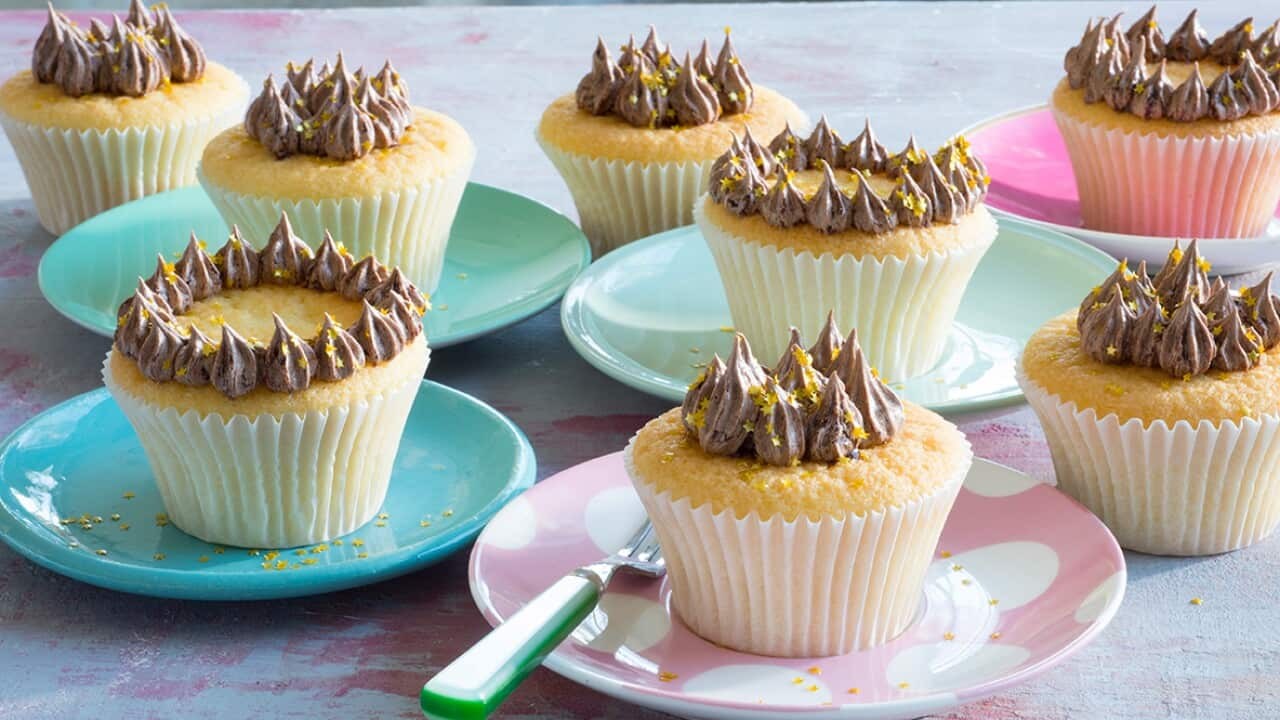Being a naturopath and nutritionist has taught me to be really in tune with my health and body. Because I’m always dealing with other people’s health, it makes me check in on my own health all of the time.
I am a coeliac and have true gluten allergies. I was diagnosed in my early 30s so I am now permanently gluten-free for medical reasons.
Living with coeliac disease is both a blessing and a curse. You have to really watch what you are eating and sometimes, it’s hard to figure out if a food product is truly gluten-free or not. But only being able to eat gluten-free foods keeps you on the straight and narrow: in some ways, it forces you to eat healthier. For example, I’m not going to show up in France and eat my way through chocolate croissants the whole time because I can’t.
Living with coeliac disease is both a blessing and a curse.
Having a gluten allergy also makes me be prepared. Often, I’ll have food with me if I go on long plane flights, rather than be at the mercy of the airline’s gluten-free meals.
Being coeliac today is a lot easier than it used to be – the gluten-free brands of 15 years ago were hideous while the options available now are amazing. However, you still have to be careful with your choices, as there are some pretty unhealthy gluten-free options available these days. When people are truly coeliac need to take their condition quite seriously. I’ve met a few people lately who have been diagnosed and they aren’t really on board with it or they are resenting their diagnosis. It’s hard to watch because eating gluten when you’re a coeliac can have major health repercussions.
When people are truly coeliac need to take their condition quite seriously. I’ve met a few people lately who have been diagnosed and they aren’t really on board with it or they are resenting their diagnosis. It’s hard to watch because eating gluten when you’re a coeliac can have major health repercussions.

As a nutritionist for the Blackmores Sydney Running Festival, Kira Sutherland works with runners and ultra-athletes. (Image: Supplied) Source: Supplied
If you have a gluten allergy, you have to learn to just learn to go with the flow, as you can’t fix – once diagnosed, you have it for the rest of your life. So you need to always check-in with your body, intuitively, to recognise how different foods make you feel. That’s a pretty powerful thing that people often forget to do.
Having a gluten allergy also makes me be prepared. Often, I’ll have food with me if I go on long plane flights, rather than be at the mercy of the airline’s gluten-free meals.
My day on a plate as a nutritionist and triathlete
My life is very focused on physical activity. I do triathlons, long distance running and a lot of swimming. I’m a nutritionist for the , and work with runners and ultra runners as a practitioner. My husband and daughter also do a lot of sports.
So each day, I wake up between 5 and 6 am – the time depends on the type of exercise training I have to do. If I’m training for an iron man or half-iron man race, I do 15-20 hours of training a week. If I’m training for a different marathon, I train for about 12 hours a week. But if I’m not training for anything specific, I’ll go as low as five to eight hours a week, which I know isn’t low for some people.
Sometimes I will train on an empty stomach if it’s a short session. Otherwise, I’ll eat a Medjool date or banana before I train because research says women often perform better at training if they have a little bit of food in their system. Then I eat my breakfast after I work out.
If I’m training for a marathon and I go out on a two-hour run, I eat something more substantial before I start my run. But I always replenish my body after training.

My life is very focused on physical activity. I do triathlons, long distance running and a lot of swimming. (Getty Images) Source: Digital Vision/Getty Images
Breakfast
I change what I eat according to the volume of training I do but it’s important that my breakfasts are nutrient-dense and have a lot of protein.
On an average day, my breakfast might be an omelette with vegetables and gluten-free toast. I could make a smoothie or have full-fat Greek yoghurt with berries. We make some pretty healthy crepes in my household. I also have coffee every day, black – coffee is my poison.
Lunch
Sometimes I have two large snacks rather than having lunch. I make homemade energy bars with seeds, nuts and a little bit of dried fruit. Or I’ll have seeds, nuts, an apple or carrots and hummus as a snack. If I do have lunch, I might have a salad and protein.
Dinner
Dinner typically contains of a good portion of vegetables. I’m a bigger salad eater than I am a stir-fry eater. I also make lot of slow cooker meals with meat and vegetables.
If I eat out we go out for dinner, we might have Japanese or my family love Indian food and order a lot of vegetarian dishes. If the restaurant has amazing deserts, I’ll eat it and not feel guilty about it. I’ll usually go for a slightly darker chocolate deserts if I can or share a desert with someone, as I’m looking to enjoy the taste than the quantity.
It would be rare that I go off the rails food wise. I’m not super-strict but I do the right thing [by my health and diet], 80 to 90 per cent of the time. But health, food and exercise are individual to each person. To get the balance right, you always need to look at how you feel, individually, and not at what everyone else is doing.
Kira Sutherland is a sports nutritionist, naturopath and member of the To find out more about Kira,







